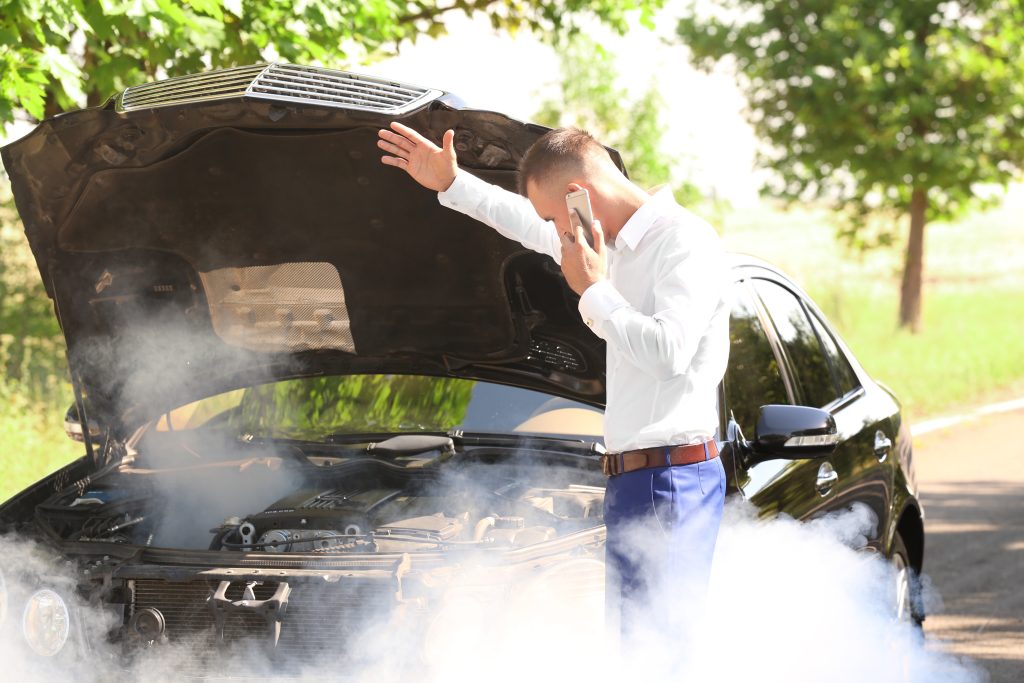How Hot Does A Car Engine Get?
The temperature of a car engine is a crucial factor that determines its performance and longevity.
If the engine temperature is too low, it may not function optimally and may cause problems such as misfires or reduced fuel efficiency.

On the other hand, if the engine temperature is too high, it can lead to serious issues such as engine damage or even engine failure.
That is why it is essential for car owners to understand how hot a car engine can get and what they can do to prevent overheating.
Factors Affecting Engine Temperature:
There are several factors that can affect the temperature of a car engine. Some of the most significant include:
Type of engine: The type of engine, such as a four-stroke or two-stroke engine, can significantly affect its temperature. For example, two-stroke engines tend to run hotter than four-stroke engines due to their design.
Driving conditions: The temperature of the engine can also be affected by driving conditions such as stop-and-go traffic, mountainous terrain, or high speeds.
Engine load: The amount of load that the engine is under, such as towing a heavy load or carrying a full passenger load, can also affect the engine temperature.
Engine size and design: The size and design of the engine can also play a role in determining its temperature. For example, larger engines tend to run hotter than smaller engines due to their increased size.
Engine efficiency: The efficiency of the engine can also have an impact on its temperature. More efficient engines tend to run cooler, while less efficient engines may run hotter.
Normal Engine Temperature Range
The normal operating temperature of a car engine can vary based on make and model.
However, most engines are designed to operate within a temperature range of 195°F to 220°F.
It is important to note that the temperature can vary depending on whether the engine is operating in cold or hot conditions.
What Happens When The Engine Temperature Is Too Hot?
When the engine temperature is too hot, it can cause a number of problems and potentially lead to serious damage.

The following are some of the most common consequences of an overheated engine:
Engine damage: Overheating can cause serious damage to the engine, such as warped or cracked cylinder heads, damaged bearings, or a blown head gasket.
Loss of power: An overheated engine may lose power and performance, as the heat can cause the engine to run less efficiently.
Decreased fuel efficiency: Overheating can also cause decreased fuel efficiency, as the engine has to work harder to maintain its normal operating temperature.
Warped pistons: The excessive heat can cause the pistons to warp and lose their shape, which can cause engine damage and loss of compression.
Melted or damaged engine components: Overheating can cause engine components, such as spark plugs, to melt or become damaged, which can lead to engine failure.
Engine seizure: In extreme cases, overheating can cause the engine to seize up, which is a catastrophic failure that can result in the need for a costly engine rebuild or replacement.
Increased wear and tear: Overheating can also cause increased wear and tear on the engine and its components, which can lead to a shorter lifespan for the engine.
Therefore, it is important for car owners to take steps to prevent overheating and maintain proper engine temperature to avoid these serious consequences.
Overview Of The Engine Cooling System
The engine cooling system consists of several components, including the radiator, water pump, thermostat, and hoses.

These components work together to regulate the engine temperature by circulating coolant through the engine block and then through the radiator where it is cooled by air flowing over the radiator fins.
Common Causes Of Overheating
Overheating can be caused by several factors, including a low coolant level, a malfunctioning thermostat, a clogged radiator, or a leak in the cooling system.
Signs Of Overheating
The signs of overheating can include steam coming from under the hood, a temperature gauge reading high, or a warning light on the dashboard.
The Consequences Of Prolonged Overheating
If the engine temperature becomes too hot and is not addressed, it can cause serious damage to the engine, such as warped or cracked cylinder heads, damaged bearings, or a blown head gasket.
How to maintain proper engine temperature
To maintain proper engine temperature, car owners can follow these simple tips:
Regular maintenance: Regular maintenance, such as regular oil changes and tune-ups, can help to keep the engine running efficiently and prevent overheating.
Checking coolant level: Checking the coolant level regularly and topping it off as needed can help to prevent overheating.
Checking the cooling system for leaks: Checking the cooling system for leaks and fixing any leaks that are found can help to prevent overheating.
Using the right type of coolant: Using the right type of coolant, as specified by the manufacturer, can help to maintain proper engine temperature and prevent overheating.
Regular check-ups by a professional: Regular check-ups by a professional mechanic can help to identify any potential issues with the cooling system and prevent overheating.
Conclusion
In conclusion, the temperature of a car engine is an important factor that determines its performance and longevity.
Understanding how hot a car engine can get and what factors can affect its temperature is crucial for car owners to prevent overheating and maintain proper engine temperature.
By following regular maintenance practices, checking the coolant level, checking the cooling system for leaks, using the right type of coolant, and getting regular check-ups by a professional, car owners can help to prevent overheating and keep their engines running smoothly for years to come.









